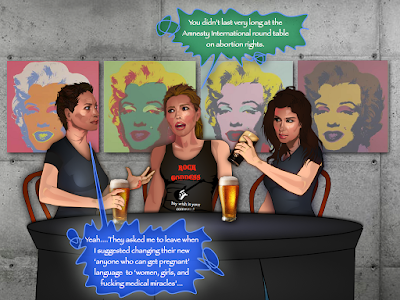This is one take, but it leaves a lot out.
In the expectations game, the Democratic Party whiffed and whiffed badly. The Biden campaign and its allies managed to drive up turnout — but so did Trump. Republicans put up a hell of a fight, and not just, or even mainly, in the battle for the White House. Democrats have almost certainly failed to win a Senate majority, and so far they have lost some ground in the House as well (while still on track to maintain control of the lower chamber of Congress).
This is one reason it’s so infuriating to me that we ended up with Biden. A less inspiring candidate it’s hard to imagine. The Democratic party is terrified of the left, while the Republican party passionately embraces the right. Why is that?
So much for the Democratic fantasy — the one that seemingly never dies — of unobstructed rule. Democrats didn’t just want to win and govern in the name of a deeply divided nation’s fractured sense of the common good. No, they wanted to lead a moral revolution, to transform the country — not only enacting a long list of new policies, but making a series of institutional changes that would entrench their power far into the future. Pack the Supreme Court. Add left-leaning states. Break up others to give the left huge margins in the Senate. Get rid of the Electoral College.
Hey. Wait just a damn minute. Getting rid of the Electoral College is not some wild lefty power trip – the Electoral College is a bad and undemocratic way to elect presidents. It also gives Republicans a massive advantage out of all proportion to their demography (hence the undemocratic part). There’s no reason for presidential elections to be state by state; the UK doesn’t count Somerset then Yorkshire then Norfolk, it counts the country as a whole.
Abolish the police. Rewrite the nation’s history, with white supremacy and racism placed “at the very center.” Ensure “equity” not just in opportunity but in outcomes. Hell, maybe they’d even establish a Truth and Reconciliation Commission to teach everyone who voted for or supported the 45th president just how evil they really are.
But is any of that part of Biden’s campaign?
No wonder so many Republicans turned out to vote. Democrats proved to be the most effective GOTV operation for the GOP imaginable.
Because of the imaginary Truth and Reconciliation Commission?
These were prominent Democrats — progressive politicians, activists, and scholars and prize-winning journalists at leading cultural institutions — talking this way. Joe Biden himself usually did the smart thing and tried to distance himself from the most radical proposals. But in the end it wasn’t enough to mollify fears of an ascendant left hell bent on entrenching itself in power and enacting institutional reforms that would enable it to lead a moral, political, and cultural revolution.
In other words there are people who are more lefty than Joe Biden is. Well no shit, but I don’t see why we should assume everyone thought they would be telling Biden what to do.
And therein lies a paradox that should be obvious but apparently isn’t: Democrats live in a country with a large, passionate opposition. Arrogant talk of demographic inevitabilities and transformative changes to lock Republicans out of power in the name of “democracy” has the effect of inspiring that opposition to unite against them, rendering political success less assured and more tenuous.
What talk? Where is this talk happening? I haven’t seen it. And to repeat: currently the Republicans lock the Democrats out of power, thanks to the Electoral College and gerrymandering and a whole lot of voter suppression, made possible by the Supreme Court’s ruling that gutted the Voting Rights Act. I think that has a hell of a lot more to do with Dem failures than the existence of people to the left of Biden.
So please, Democrats, look in the mirror and show a little humility. You’re not nearly as self-evidently wonderful or widely loved as you’d like to believe. You are not destined to prevail anywhere. You share a country with a large group of people who hate your guts, and who aren’t going to submit to your rule or go along with your giddy plans to remake the nation in your image. It’s time to start acting like you understand this implacable fact and all it implies about the limits of your power and the parameters of the possible.
He says, blithely ignoring the Shelby ruling and the weird shape of the Ohio district that sends Jim Jordan to Congress and a thousand other little details like that.

